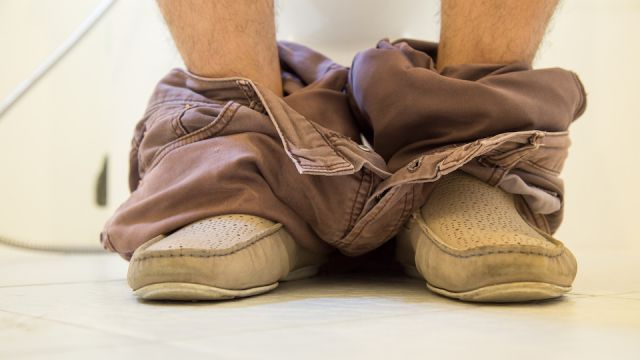
Eating too much cheese, not drinking enough water… these are both reasons why you might find yourself slightly backed up from time to time. It is unlikely that you would think to look to your workout routine as the cause of your digestive distress. While exercise is generally good for the body, there is one particular type of workout that could actually cause constipation.
HIIT training or high-intensity interval training is a popular type of workout that can be done anywhere and in a short period of time. This, along with its effectiveness to increase endurance and muscle mass has led to its rise as one of the most loved workout routines out there. However, all effectiveness aside, doing this workout consistently can lead to an uncomfortable backup.
Why HIIT workouts cause constipation
HIIT workouts are incredibly intense, and this tension in the body is what causes the digestive system to rebel. It is the short and intense movements that stress the gut and don’t allow time for necessary relaxation. If you do HIIT workouts and don’t have any bowel dysfunction, keep at it. If, however, you experience frequent constipation and are a die-hard HIIT fan, you might want to let up just a bit.
What you can do to ease constipation
Because short but intense bursts of energy could be causing your constipation, it is essential to incorporate some restorative moves into your workout routine. To combat the stress put on your gut by high-intensity moves, try some lower intensity restorative workouts. These include things like yoga, walking, and pilates. These activities give the digestive system time to move and relax – two things necessary for healthy digestion.
In addition, it is recommended to not do HIIT workouts directly after eating a meal. Allow some time for digestion before working out. This can help ease constipation issues associated with your intense workout.
You don’t have to stop your HIIT training altogether – just be sure to mix and match between intense workouts and more restorative workouts to help relax your digestive system. Before long, you should feel better and get things moving!
Other ways to ease constipation
In addition to switching up your workout routine, here are some home remedies that can help ease constipation:
Water: Drinking water is essential to good digestion. Half your weight in ounces is recommended daily.
Ripe Bananas: Ripe bananas contain fiber, potassium and digestive enzymes. Avoid green bananas as their starch content is higher and may cause more constipation.
Olive oil: Mix one tablespoon with one to two tablespoons of lemon juice in an eight-ounce glass of water and drink. It’ll get your digestion going, and it’s great for your liver, too!
Rhubarb: Rhubarb cooked into a compote and sweetened with honey provides great relief for constipation.
Sea vegetables: Sea vegetables are high in minerals and aid in healthy digestion. Your thyroid will also thank you.
Milk kefir: Milk kefir has been around for hundreds of years and is commonly used to ease constipation. Just be sure not to drink too much of it, or you’ll actually increase constipation.
Coffee: It’s the bitter components in the coffee that make it a great remedy for constipation.
Peppermint oil: Peppermint essential oil is a well-known home remedy and can be used by itself or with other essential oils.
Ginger: Enjoy plenty of ginger with your sushi, as it has been known for centuries to aid with digestive troubles.
Molasses: Molasses contains magnesium. Mixed in a cup of warm water it can be a great way to relieve constipation. If you don’t care for the taste, add a little bit of honey.
Vegetables: Vegetables are full of natural fiber, which aids in digestion. Load up your plate with plenty of veggies.
Flax oil: Flax oil coats the intestinal walls and your poop for easier elimination. Can’t handle the taste by itself? Mix it into a small glass of orange juice, as oranges also contain natural fiber.
Apple cider vinegar: Two tablespoons of apple cider vinegar in a glass of water taken about 15 minutes before a meal will help increase the release of digestive enzymes and help you poop better.
Sauerkraut: Eat sauerkraut to regulate stomach acid, provide probiotics and ease constipation.
-The Alternative Daily

